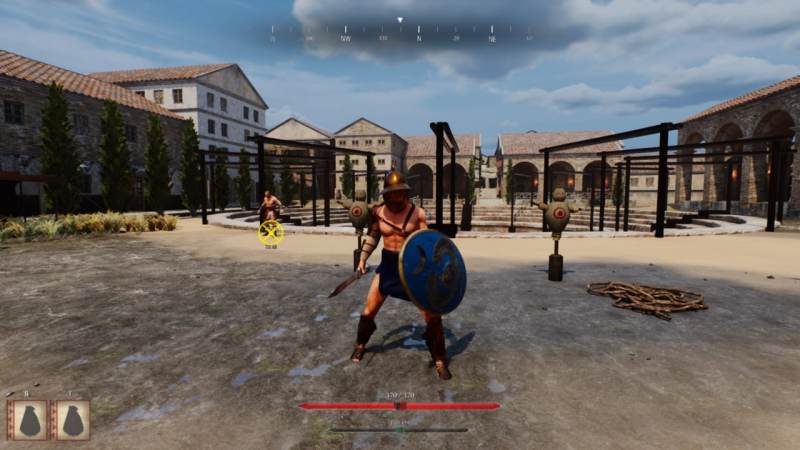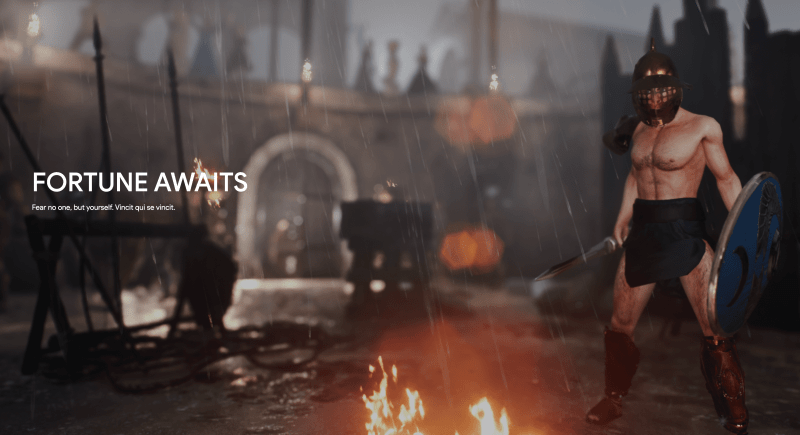Colin Helm, CEO of CaesarVerse, On Disrupting Gamefi with an Educational Roman Metaverse MMO

We speak with Colin Helm, CEO and founder of CaesarVerse.io and Bldng Blck Studios. Colin began his entrepreneurial journey by starting his first startup while studying entrepreneurship at the University of Colorado Boulder. Since then, he has held marketing roles at several startups, including DeFiner, a decentralized lending platform and Poliloop, a biotech company focused on plastic waste disposal.
In this interview, Colin speaks passionately about his latest project – CaesarVerse – a historically authentic Roman-era Metaverse game. With Caesarverse, Colin is aiming to disrupt the Gamefi market by focusing on immersing players in an educational and free-to-play environment.
Among other things, Colin talks about an intense and captivating gaming experience, intriguing Real-Time Strategy (RTS) and educational components, gameplay, and what’s next for CaesarVerse. Finally, Colin talks about the potential of Gamefi for mainstream players over the next few years.
What is CaesarVerse?
CaesarVerse is an open-world MMO that chronicles the rise and fall of Rome. It’s designed to be a historically accurate and authentic Roman metaverse where players can learn about a different culture and society through immersion. We hope to not only make a fun and enjoyable game but an educational game as well.

How can CaesarVerse disrupt the Gamefi market?
The CaesarVerse was created to be a genuine reflection of the Roman era, with historical maps, accounts, and other sources used to construct the world. Players will be able to roam the world and interact with the environment, other players, and NPCs.
Through immersion and historically accurate settings, dialogue, and missions we hope to achieve an intense and captivating gaming experience with the added benefit of passive education – a true blend of enjoyment and learning. Hopefully, in the future, we are able to incorporate VR for an unprecedented immersive experience.
Players can trade gladiators that allow them to take part in gladiatorial combat within a series of arenas. All players will be able to serve in the legions in a cooperative combat experience that recreates some of the greatest battles of classical antiquity. We also will include smaller border skirmishes and raids that are less decisive and epic in scale. Players are rewarded for serving with tokens and land similar to their rank. Our pay scales are intended to be representative of the payment of soldiers at the time, incentivizing players to rank up while also providing a fun way to be part of the economy.
CaesarVerse is introducing a rank structure for legionary combat where a higher-ranking player can command other players. These players will get XP boosts for obeying the orders of the commanding officer. While the demo release will consist only of gladiatorial combat within an arena, this ranked combat will be introduced upon full release in 2024.
The open world encourages exploration and trading not only with other players but also with different civilizations. As a Web3 game, it also features in-game NFT assets and additional components. The CaesarVerse is mainly focused on recreating an ancient civilization that still has a remarkable impact on modern society. We want to provide history enthusiasts and gamers with a way to immerse themselves in the past as deeply as possible.
You spoke before about the game’s educational components – how will CaesarVerse educate players?
The CaesarVerse will have an accompanying educational tool that educators can use to incorporate their lesson plans into the open world. Professors can create missions, tasks, or recreate historical events for their students to experience. We view this as a far more engaging and interactive learning method compared to traditional reading assignments or even historical documentaries.
Educators must compete with other sources of content for the attention of their students. Gameplay ensures that students remain focused and are far more likely to retain information. We want to make the best homework a student can be assigned.

Tell us more about CaesarVerse’s Real Time Strategy elements.
I’ve always been a huge fan of RTS games and have logged thousands of hours in games such as Age of Empires and the Total War series. However, I’ve always wanted the ability to engage in combat as well. We have a combat system where different ranks allow for different commands, as a Consul would have control of two legions while a Legate would have command of a single legion and Centurions would command a century of troops. These soldiers would be a mix of bots and players depending on the number of active players participating in the campaign.
Commanders will need to know their enemy and fighting style, as one can expect a fierce charge from Gallic tribes while Parthians will engage their horse archers before striking with cataphracts. We want the command structure to ensure realistic combat and movement of units, rather than each player sprinting around engaging in 1v1 combat. The discipline and organization of the legions set Rome above their adversaries, so it will be crucial to protect flanks and maintain a solid battle line.
How will CaesarVerse’s gameplay attract new players?
Our target audience is history gamers and enthusiasts. As a history nerd and avid gamer, I find that the offerings from most studios to be more set in fantasy than history.
Our goal is to appeal to this audience through engaging and fun gameplay that goes beyond in its detail, historical content, and provides a challenge rarely seen in modern gaming. Combat will be a challenge and you shouldn’t expect to be able to button-mash your way through hordes of enemies. Elden Ring is a great example of this, where the increased difficulty makes victory just that much more rewarding.
You previously spoke about how many current Web3 games are profit-driven – how is CaesarVerse different?
A key differentiator is the free-to-play aspect. If you enjoy the game, you’re always welcome to purchase a premium account with XP boosts, access to free NFT mints, and other rewards. If you simply want to explore the open world and take in the scenery, players are welcome to join with a free account and test the waters.
We expect the player base to grow over time as we follow the rise of Rome from a small city-state to the massive empire that we always think of. With centuries of content, we are confident that we can continue to provide new experiences, enemies, and rewards to keep the experience novel and captivating.
How do you see Gamefi progressing over the next couple of years? When will it go mainstream?
I believe that Gamefi is well on its way to becoming mainstream. If we look at the costs associated with developing games, studios need to look at recurring revenue streams beyond the initial purchase of a game. We have seen loot boxes and battle passes as prime examples of this. If the in-game economy and player base are robust enough to sustain the model, Gamefi is a perfect solution for both the studio and the player.
Players are able to profit from their skill and time commitment, and studios are able to sustain their development and support of the game through the exchange of goods. We have seen issues where the player base suddenly drops and therefore the model is no longer sustainable, but if the content is engaging and quality updates are delivered, I believe we will see more and more mainstream titles move in this direction. By 2025, we will see more AAA titles adopting this model.
What’s next for CaesarVerse? Can you tell us about any upcoming events?
We are planning on minting our first collection of gladiators in the coming months! We are finalizing the character models at the moment and hoping to finish the smart contracts soon as well. If you’d like to know more about the project, I will be attending ETH Denver and will be happy to answer any questions about the game and our future content schedule. We have a big announcement coming in the next week or so, so stay tuned!





